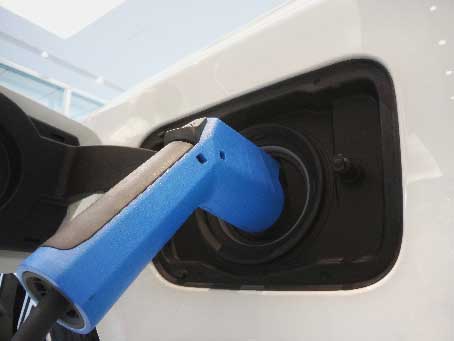Electric vehicles are rapidly gaining popularity in the UK. You may be considering embracing this eco-friendly trend when introducing new vehicles to your company, whether for personal use or your employees. It’s essential to understand that electric vehicles not only benefit the environment but can also offer tax advantages to businesses that invest in them.
So, can your business cover the cost of your home electric car charging point? The answer varies depending on who owns the car.
Company-Owned Electric Vehicle
If your company owns or leases an electric vehicle, your business can pay for the installation of a home charging point without an employee incurring any Benefit in Kind (BiK) charges. This means that your employees won’t be liable for any tax related to the installation of an electric car charger.
Employee-Owned Electric Vehicle
The rules differ in this case. If your employee owns or leases their electric vehicle, which they also use for business purposes, they will be subject to a BiK charge based on the full cost of installation of the charging point at their property. However, your business itself won’t be responsible for paying tax on the installation of the charging point.
To put it into perspective, if the charger installation costs £500 and your employee is a 40% taxpayer, they would be liable for an additional £200 in income tax. This is disclosed by your company reporting the BiK details on a P11d form to HMRC.
Legislative changes
It’s important to note that these rules are subject to change, especially depending on when the vehicle was purchased.
If the car charger was acquired and installed between April 1, 2021 and March 31, 2023 your business could claim capital allowances at 130% of the installation cost, known as the Super Deduction. Regrettably, this enhanced tax allowance ended on March 31, 2023, meaning that any new electric charging points installed won’t benefit from the Super Deduction. However, the government has extended the availability of the 100% first-year allowance for qualifying expenditures on electric vehicle charge-points for two additional years, until March 31, 2025 for Corporation Tax purposes and April 5, 2025 for Income Tax purposes.
Navigating these rules can be complex, as they are subject to change and influenced by various factors. To fully understand the implications it’s advisable to also monitor the HMRC Employment Income Manual for any revisions.
How can Everett King help?
Feeling overwhelmed by these regulations? We’re here to simplify things for you. Contact us today, and let’s work together to help you understand how these rules will apply to your business.

